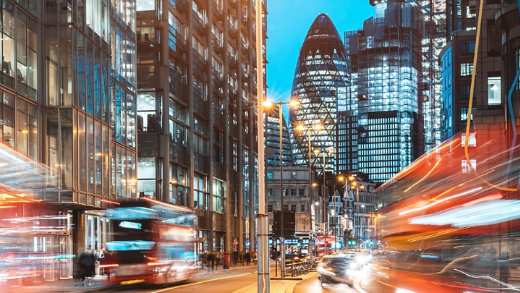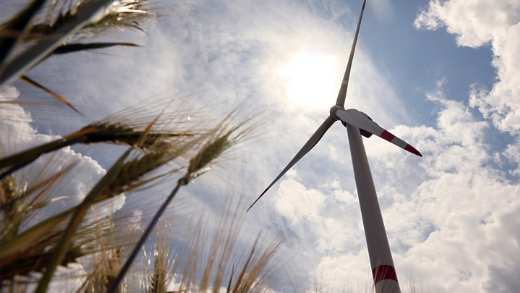Recent thinking
-

Multi-asset allocation views: A silver lining for gilts
4 Aug 2023
UK gilts have underperformed other government bonds over the last year. Sunil Krishnan explains why the worst may be over.
-

The investment case for nature
17 May 2022
The impact of economic activity on the natural world has long been ignored. However, governments, companies and investors can all play a role in helping to protect nature.
-

Why investors must act now on the biodiversity crisis
26 Apr 2022
The concepts of biodiversity and ‘natural capital’ have been largely ignored by business and finance until recently. Investors are now starting to take the issue seriously and build it into their thinking.
-

The outlook for UK equities
21 Apr 2022
The UK equity market has been unloved by investors for much of the past decade. However, several positive factors suggest UK equities could return to favour.
-

The challenge of delivering net zero
11 Apr 2022
Financial services businesses have begun the complex businesses of working out how to deliver on their net-zero ambitions and play their part in tackling climate change.
-

Facing up to the ESG backlash
6 Apr 2022
Asset managers must better explain how ESG can improve investment returns and make the world a better place. Clear guidance to help investors choose between funds is also required.
-

Why companies should do more to recruit from diverse socioeconomic backgrounds
22 Mar 2022
There is a strong case for finance and other elite professions to become more socially diverse and tap into a much larger pool of potential talent.
-

How bond investors can influence companies and governments to change their behaviour for the better
17 Mar 2022
Bondholders are starting to use their power to influence corporate behaviour in areas such as climate change, social inequality and biodiversity loss.
-

ESG in focus: What does the data say?
8 Mar 2022
Using data visualisation tools, we present some of the biggest ESG trends of the last few years.
-

Investing for a fairer world
4 Feb 2022
The impact of poor corporate behaviour on society has been one of the great blind spots of the financial industry, despite evidence of the damage done. We look at how investors should approach socially-responsible investing.
-

Why investors should care about nature
31 Jan 2022
There is growing concern about the impact of economic activity on the natural world. Investors can make a difference by focusing on those companies seeking to improve their behaviour and those developing products and services that will benefit the environment.
House View
No one can predict the future. But our quarterly House View sets out the collective wisdom of our investment teams on the current state of global markets – and where they might be heading.

The Little Book of Data
Good data visualisation makes us see the world anew. The sixth edition of The Little Book of Data presents original and curated visuals, charts and graphics to offer a fresh perspective on topics shaping our world.

Equities
-

The outlook for UK equities
The UK equity market has been unloved by investors for much of the past decade. However, several positive factors suggest UK equities could return to favour.
Fixed income
-

How bond investors can influence companies and governments to change their behaviour for the better
Bondholders are starting to use their power to influence corporate behaviour in areas such as climate change, social inequality and biodiversity loss.
Economic research
-

The investment case for nature
The impact of economic activity on the natural world has long been ignored. However, governments, companies and investors can all play a role in helping to protect nature.
-

Facing up to the ESG backlash
Asset managers must better explain how ESG can improve investment returns and make the world a better place. Clear guidance to help investors choose between funds is also required.
-

Why companies should do more to recruit from diverse socioeconomic backgrounds
There is a strong case for finance and other elite professions to become more socially diverse and tap into a much larger pool of potential talent.
-

ESG in focus: What does the data say?
Using data visualisation tools, we present some of the biggest ESG trends of the last few years.
-

Investing for a fairer world
The impact of poor corporate behaviour on society has been one of the great blind spots of the financial industry, despite evidence of the damage done. We look at how investors should approach socially-responsible investing.
-

Why investors should care about nature
There is growing concern about the impact of economic activity on the natural world. Investors can make a difference by focusing on those companies seeking to improve their behaviour and those developing products and services that will benefit the environment.
Sustainability
-

The investment case for nature
The impact of economic activity on the natural world has long been ignored. However, governments, companies and investors can all play a role in helping to protect nature.
-

Why investors must act now on the biodiversity crisis
The concepts of biodiversity and ‘natural capital’ have been largely ignored by business and finance until recently. Investors are now starting to take the issue seriously and build it into their thinking.
-

The challenge of delivering net zero
Financial services businesses have begun the complex businesses of working out how to deliver on their net-zero ambitions and play their part in tackling climate change.
-

Facing up to the ESG backlash
Asset managers must better explain how ESG can improve investment returns and make the world a better place. Clear guidance to help investors choose between funds is also required.
-

Why companies should do more to recruit from diverse socioeconomic backgrounds
There is a strong case for finance and other elite professions to become more socially diverse and tap into a much larger pool of potential talent.
-

ESG in focus: What does the data say?
Using data visualisation tools, we present some of the biggest ESG trends of the last few years.
-

Investing for a fairer world
The impact of poor corporate behaviour on society has been one of the great blind spots of the financial industry, despite evidence of the damage done. We look at how investors should approach socially-responsible investing.
-

Why investors should care about nature
There is growing concern about the impact of economic activity on the natural world. Investors can make a difference by focusing on those companies seeking to improve their behaviour and those developing products and services that will benefit the environment.
Subscribe to AIQ
Receive our insights on the big themes influencing financial markets and the global economy, from interest rates and inflation to technology and environmental change.













